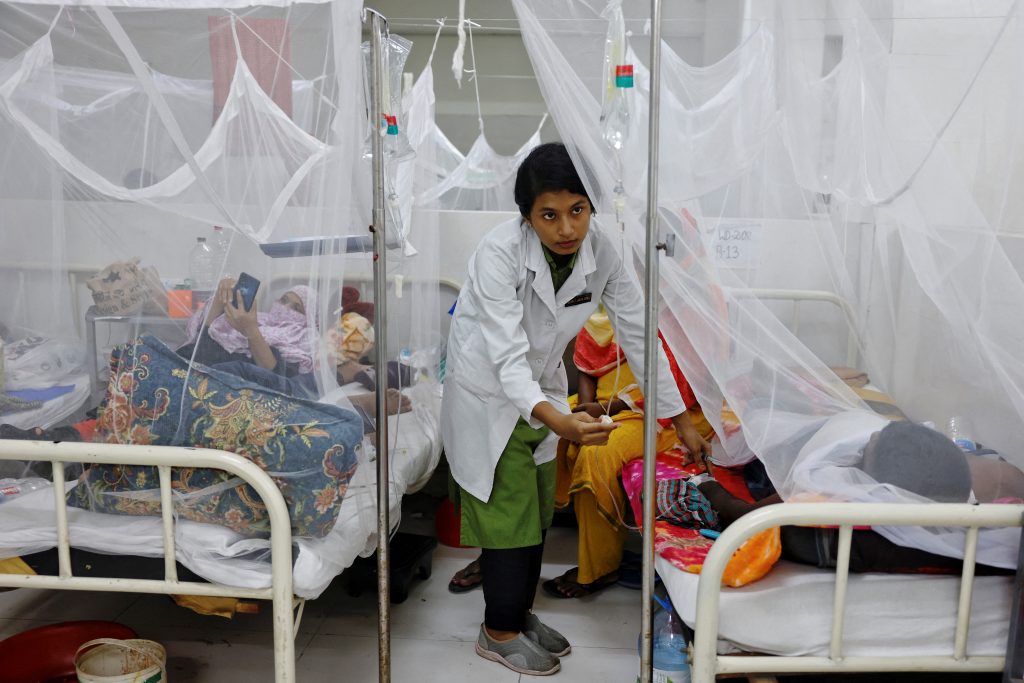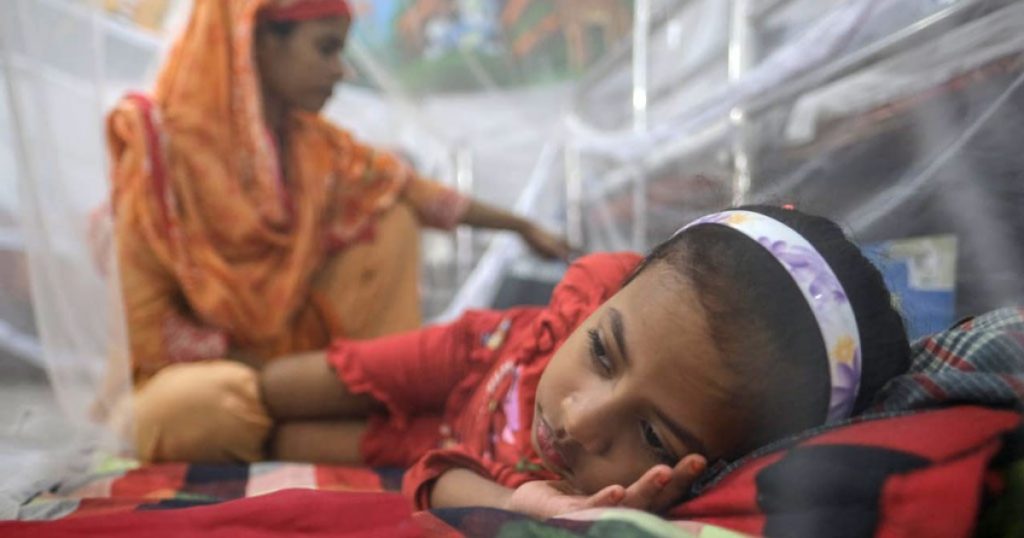
In recent weeks, dengue has claimed close to 1,000 lives in Bangladesh, according to authorities, making this the most severe dengue outbreak the country has ever experienced.
The dengue virus-carrying mosquitoes are now more easily able to breed in filthy, stagnant water as a result of unusually wet monsoons.
Hospitals have been critically overwhelmed as officials struggle to stop the disease’s spread.
In severe cases, dengue causes internal bleeding which can lead to death.
Headaches, nausea, pain in the muscles and joints are some of its symptoms.
In tropical countries, dengue is an endemic disease, and outbreaks frequently happen in urban areas with poor sanitation, which encourage the growth of mosquitoes that spread the virus.
It used to be a seasonal disease in Bangladesh, but since the first outbreak was reported in 2000, outbreaks have been happening more frequently as a result of hotter and wetter monsoons brought on by climate change.
According to public health officials, the current wave of infections caught the country off guard because it is brought on by a more potent strain of the virus.
In comparison to recent years, doctors have noticed that the condition of dengue patients is currently deteriorating much more quickly.
The death toll from dengue this year has surpassed that of the previous 22 years, according to officials, with up to 20 people dying from the disease every day for the past two months.

To stop the formation of mosquito breeding grounds, Bangladesh has started public awareness campaigns.
But more needs to be done, says public health specialist Dr. Mushtaq Hussain.
“Those concerned think that it may be a temporary disease, and that it will go away after a few days, so no effective or long-term measures are being taken,” he said.
According to the World Health Organization, dengue infections have been documented in each of Bangladesh’s 64 districts.
Hundreds of dengue patients have flocked to hospitals in Dhaka, the country’s capital, in search of care, but the majority of the facilities are at overcapacity.
A crucial component of treatment for dengue patients who frequently become dehydrated is intravenous fluids, which hospitals are also lacking in.
Source-BBC





